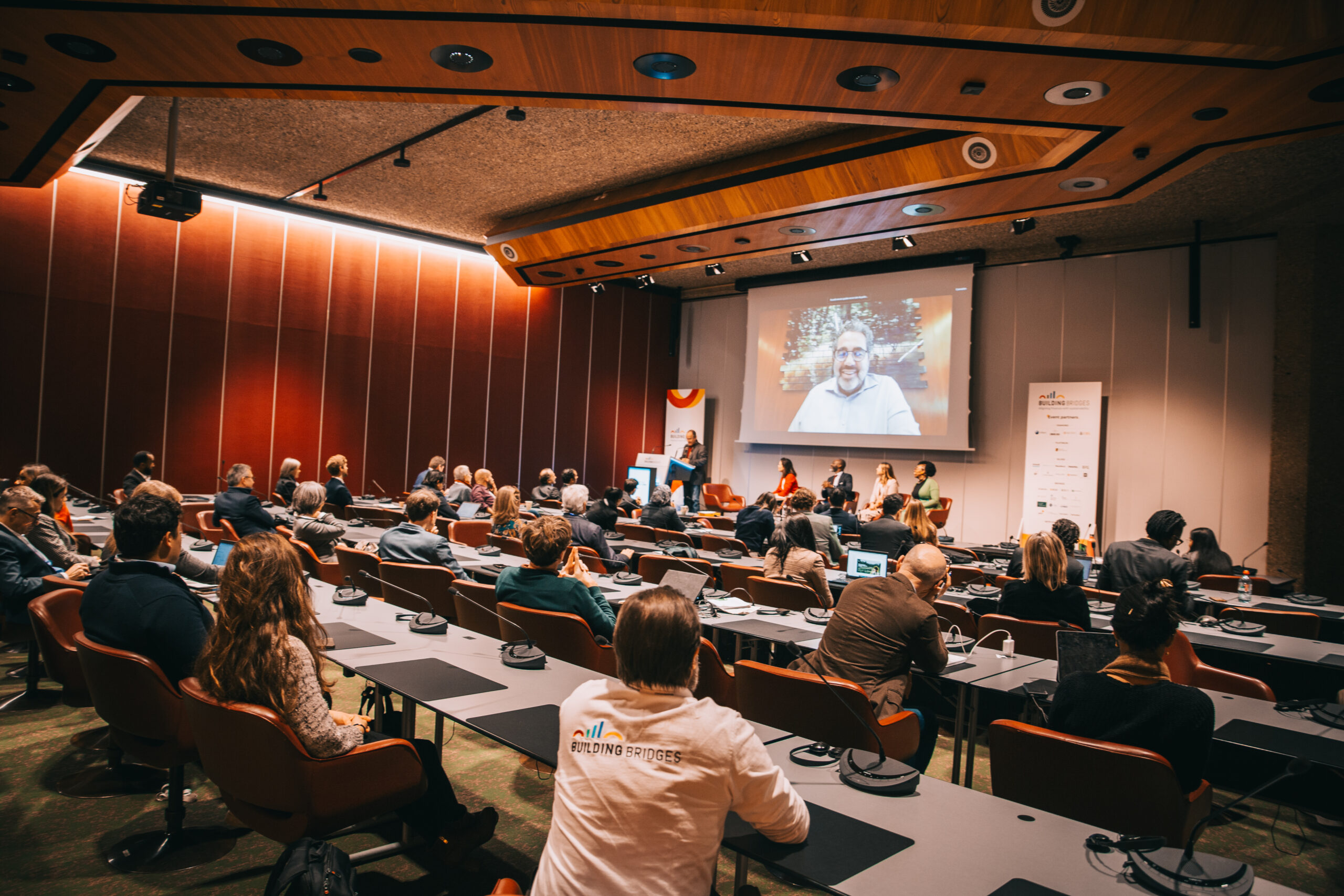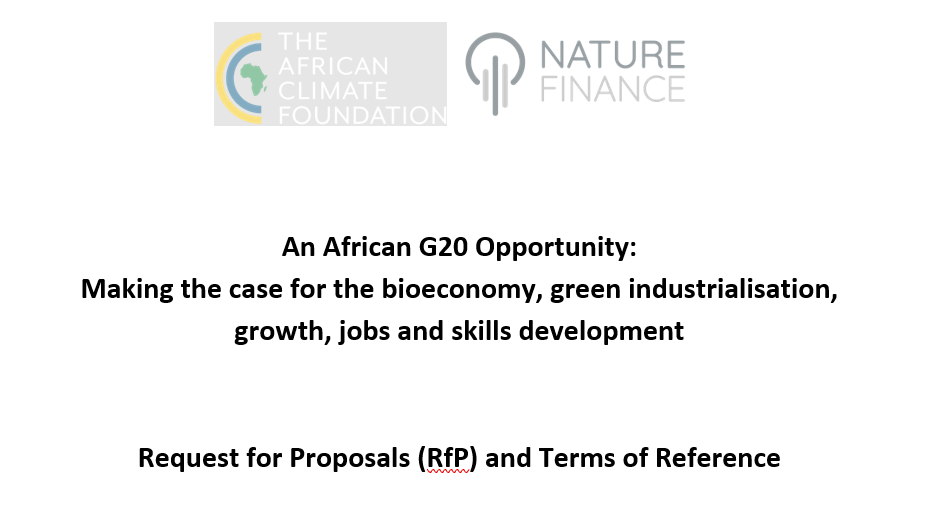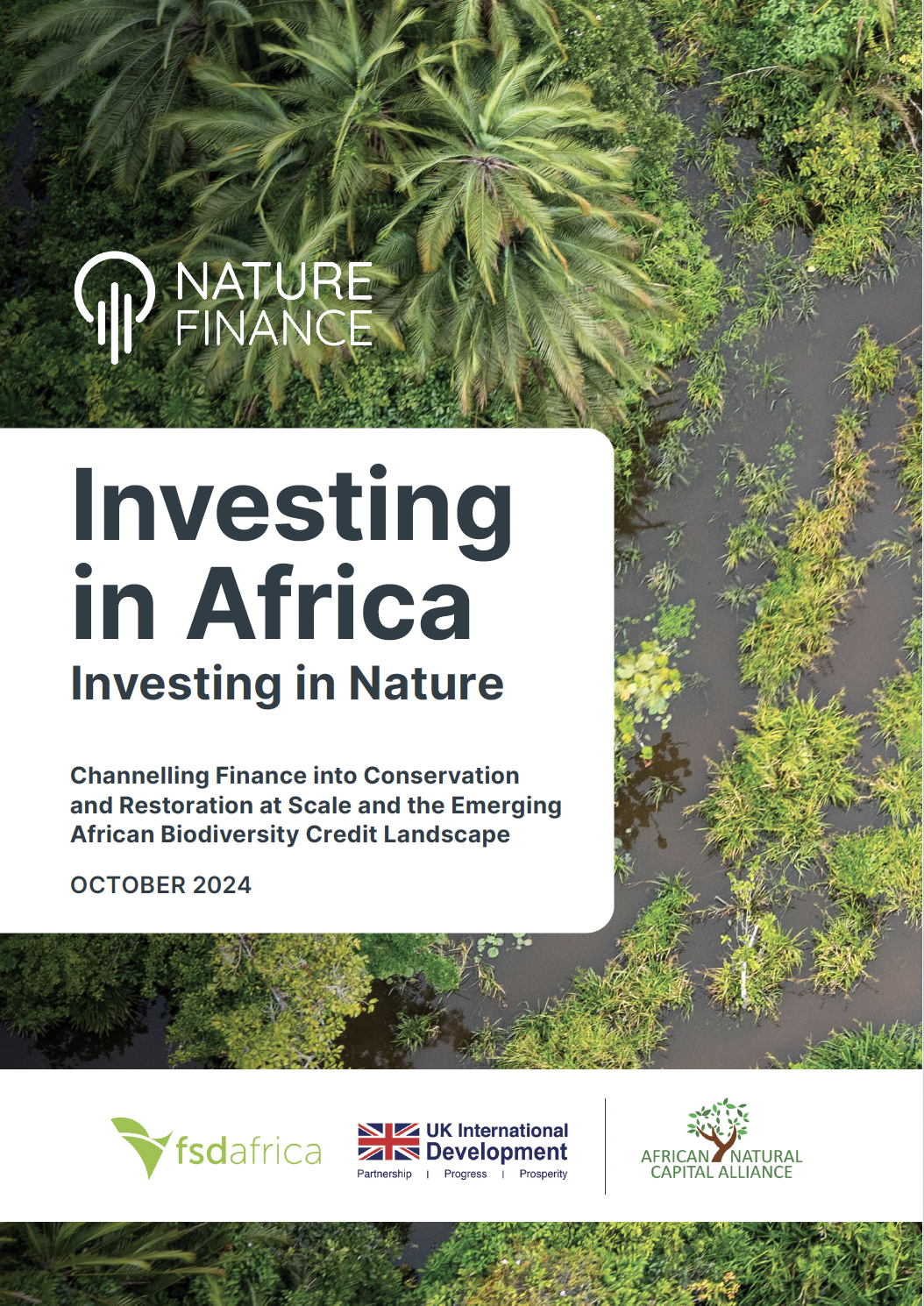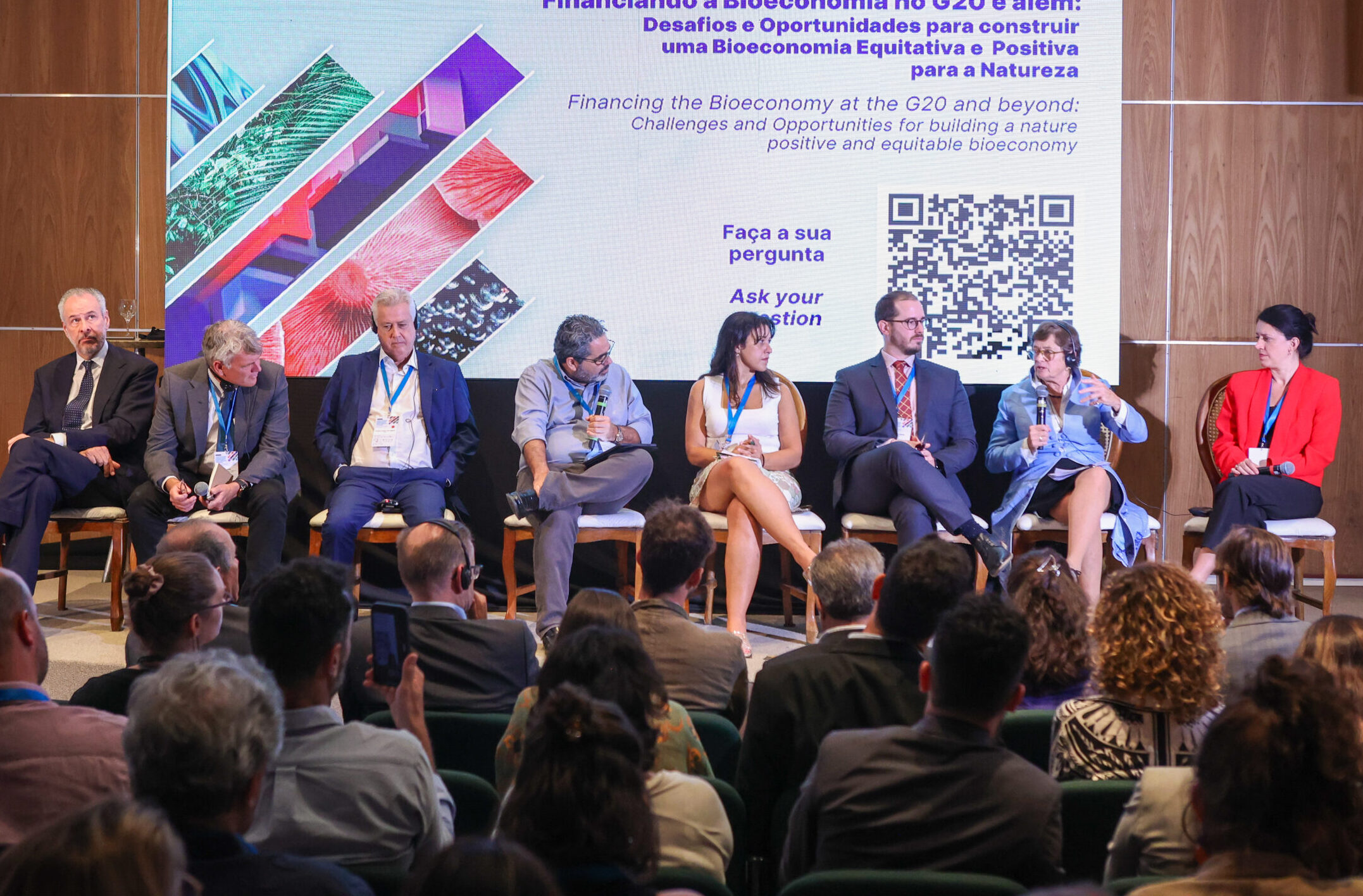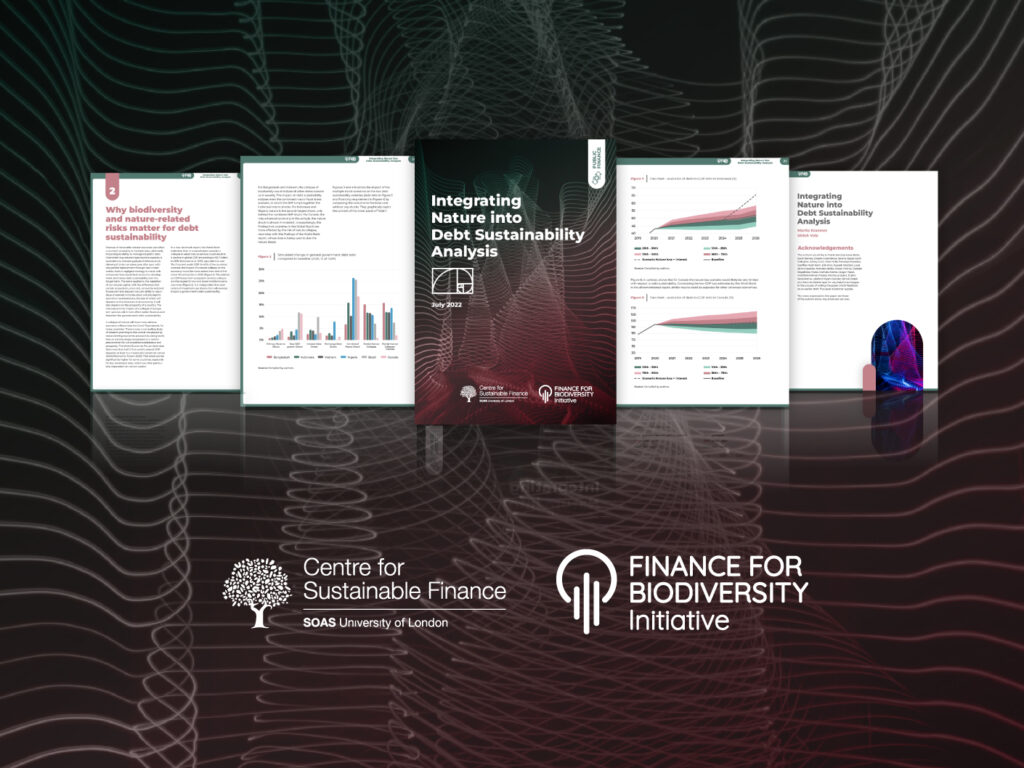
· Omitting nature risks in debt sustainability analysis could lead to inaccurate policy recommendations and increase the risk of avoidable debt crises for many countries.
· Under a scenario of partial nature collapse the debt-to-GDP ratio could rise steeply for developing countries such as Bangladesh (15 percentage points), Nigeria (13 percentage points), Indonesia (11 percentage points) and Brazil (7 percentage points).
· The report calls for integration of nature-related risks into the debt sustainability framework used by the IMF.
· Partial collapse of ecosystem services – such as forestry, fisheries and pollination services –will have more adverse economic effects on debt metrics than the Covid-19 pandemic for many countries.
Monday 11 July 2022 – A new report by NatureFinance (formerly known as Finance for Biodiversity (F4B) ) and the SOAS Centre for Sustainable Finance highlights the urgent need to integrate nature-related risks into the framework for Debt Sustainability Analysis (DSA) created by the International Monetary Fund (IMF). The report shows that by failing to incorporate nature risks (such as biodiversity loss) the IMF’s DSAs miss significant economic and financial risks.
The IMF’s DSAs have important consequences. The DSA-classification may have repercussions on governments’ market access or the need to restructure public sector obligations outright. The classification powerfully drives the macro-conditionality of IMF-sponsored economic programmes.
F4B’s new report – Integrating Nature into Debt Sustainability Analysis (click here to access) – provides compelling evidence of the potential impacts that a partial nature collapse scenario (i.e. the loss of ecosystem services such as wild pollination, provision of food from marine fisheries, and timber from native forests)) will have on the debt sustainability of sovereigns – particularly in many developing countries where natural capital makes up a higher share of total wealth.
To demonstrate this, the report applies a methodology for integrating nature-related risks into debt sustainability frameworks for six countries – Bangladesh, Brazil, Canada, Indonesia, Nigeria and Vietnam.
Results show that a partial nature collapse would eclipse all other IMF stress scenarios in severity for Vietnam and Bangladesh, and would be the second most severe shock for Indonesia and Nigeria. The stress test includes the IMF’s combined macro-fiscal stress scenario, in which the IMF consolidates individual macro shocks.
· For Bangladesh, the debt-to-GDP ratio would rise by 15 percentage points to 56% within a year after the shock, compared to the baseline scenario without shock. The nature collapse shock would be between three and four times as damaging to Bangladesh’s debt sustainability than the recent pandemic.
· For Indonesia, a partial nature collapse would increase the debt-to-GDP ratio by over 11 percentage points to exceed 63%. GDP would shrink by 11%.
· Brazil would see an increase in the debt-to-GDP ratio of 7 percentage points, while its GDP would fall by over 4% in the case of a partial nature collapse.
· Nigeria’s debt-to-GDP ratio would grow by over 13 percentage points and the nation’s GDP would decrease by 9.5%.
Without considering nature-related risks, the report argues that the IMF’s DSAs will for many countries misdiagnose the true risks to debt sustainability, leading to erroneous policy recommendations and increasing the risk of avoidable debt crises.
Simon Zadek, Chair, Finance for Biodiversity, said: “Climate risks have started to be incorporated into the IMF’s frameworks for Debt Sustainability Analysis (DSA), but addressing risks emerging from the loss of nature is as important. This study demonstrates the dire consequences that partial nature collapse can have on countries’ public finances and the imminent need to integrate the risks of nature destruction into the IMF’s macroeconomic and financial assessments.
Sovereign bond markets can provide solutions for reducing these risks and increase countries’ resilience in the face of the biodiversity crisis by advancing fast and radical innovation in the field of nature KPI-linked sovereign debt instruments.”
Moritz Kraemer, Senior Fellow at the Centre for Sustainable Finance at SOAS, University of London, said: “Nature continues to disappear at a rapid and accelerating pace with many ecosystems already degraded beyond repair or at imminent risk of ‘tipping points’. This is not just a problem for insects, polar bears, and orangutans – the loss of natural capital from forests to fisheries will have more adverse economic effects than the Covid-19 pandemic for many countries.
That’s why it is critical for the IMF and World Bank to introduce biodiversity and natural capital risk into their debt sustainability assessments. Given the significance of nature-related risks for economic prosperity and development, failing to integrate nature-related risks into DSAs and other macroeconomic and financial risk assessments would be a grave omission.”
Ulrich Volz, Professor of Economics and Director of the Centre for Sustainable Finance at SOAS, University of London, said: “Just like climate change, nature and biodiversity loss are threatening economic development, macrofinancial stability, and public finances. Integrating nature risks into debt sustainability analysis is not only doable. It is critical to properly reflect the risks facing public finances and financial stability. It is also important to raise awareness that habitat conservation is macro-critical.”
Today’s report follows on from the release of the world’s first biodiversity-adjusted sovereign credit ratings paper (Nature Loss and Sovereign Credit Ratings) which laid out how ecological destruction affects public finances – driving downgrades, debt crises and soaring borrowing costs.

